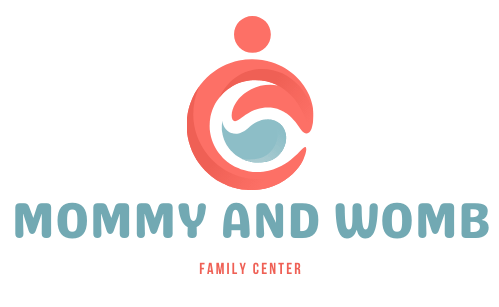Embracing Motherhood: Joys and Challenges

As you hold your newborn close, their tiny fingers curl around yours. A deep sense of purpose and love fills you. Motherhood, a journey of joy and challenge, has started. It asks for everything you have, but gives back a love that’s unmatched1.
The maternal instinct, as old as time, guides you through parenthood. From childbirth’s awe to the endless days of caring, you’re changed. Your life is now forever linked to the one in your arms.
Motherhood is a mix of joy and isolation, of feeling strong and unsure. The saying “strong as a mother” shows the strength, love, and care you show every day. You strive to give the best to your family.
Embracing motherhood means facing its challenges and finding inner strength. It’s about believing in your ability to care for and guide your child on their journey.
Table of Contents
The Paradox of Motherhood
Motherhood is a journey filled with joy and challenges. Mothers feel a deep bond with their children. Yet, they face a tough balance between their dreams and the realities of raising kids2. This paradox hinders women’s empowerment worldwide2.
Celebrating the Journey with Open Arms
The joys of motherhood are unmatched. There’s nothing like a child’s laughter or a tight hug. But, the challenges are real too, like balancing work and family life2. Despite progress, many women still face these daily struggles2.
Navigating the Emotional Rollercoaster
Motherhood is like an emotional rollercoaster. One moment, pure joy; the next, self-doubt2. Women often feel guilty and stressed, caught between being a good worker and mother2. This can lead to burnout and career setbacks2.
“The motherhood paradox creates a zero-sum game where success in one area often means failure in another, reinforcing the need for redefining success for working mothers.”2
Cultural expectations add to the motherhood paradox. In places like New York and Mumbai, working mothers like Maya and Meera struggle2. They face pressure to excel at work and be perfect mothers3.
Women often work full time and care for their families3. They’re expected to work as if they don’t have kids and parent as if they don’t work3. This double-edged guilt is common among working moms3.
The role of women has changed, but the systems haven’t kept up3. Women try to fit in by working like men, but it doesn’t work for most3.
- Men and women face different societal expectations3.
- Society’s norms often hold women back from reaching their full potential3.
- Women should prioritize self-care, set boundaries, and challenge norms to create change3.
The motherhood paradox is complex, but mothers can find strength in it2. By embracing the journey and navigating the emotional ups and downs, mothers can redefine success and pave the way for a fairer future2.
Understanding Mom Burnout
Many mothers face mom burnout due to the endless needs of their children and societal expectations. This state of exhaustion affects their physical, emotional, and mental health4. Studies show that two-thirds of mothers feel anxious, with over a third saying their anxiety is severe4. Also, up to 21% of women experience depression in the year after giving birth4.
What Triggers Mom Burnout?
Several factors lead to mom burnout, including unrealistic expectations and lack of support5. The World Health Organization (WHO) sees burnout as a result of long-term stress at work4. It’s marked by exhaustion, feeling less effective, and cynicism4.
Recognizing the Signs of Mom Burnout
Spotting mom burnout is key to recovery. Look out for constant tiredness, irritability, and feeling disconnected6. Other signs include chronic fatigue, losing interest in activities, mood swings, and feeling overwhelmed6. Getting help and practicing self-care are vital in beating mom burnout.
“The emotional, mental, and physical exhaustion of motherhood is a universal challenge, but one that can be overcome with the right support and self-care strategies.”
The Ripple Effects of Mom Burnout
The Toll on Mother’s Well-Being
Mom burnout can really hurt a mother’s mental and physical health. A 2023 Pew Research Center survey found that about 1 in 3 parents in the U.S. feel stressed “most of the time” when parenting7. This stress and exhaustion can make moms more likely to get postpartum depression and anxiety7.
These conditions can make a mom feel really bad about herself and not good enough7.
But mom burnout does more than just hurt a mom’s feelings. A study by Ohio State University’s College of Nursing showed a strong link between high parental expectations and burnout7. Burnout can also weaken the immune system, making moms more likely to get sick7.
This can start a cycle of self-neglect that makes burnout even worse7.
“Taking care of oneself as a parent can set a good example for children and potentially reduce parental burnout, considered by experts as a ‘public health epidemic.'”
The Impact on Children
As a mother, your emotional health deeply affects your kids’ growth and happiness. Burnout can change the mood at home, impacting your children’s feelings8. Kids may feel more anxious, moody, or act out if they sense their mom is stressed8.
Burnout can also reduce a mom’s patience and empathy, leading to more yelling or withdrawal8. This can harm the special bond between mom and child, affecting their emotional health and growth9.
- Children who feel close to their moms tend to handle emotions better than those who don’t8.
- Studies show that when moms listen and validate their kids’ feelings, kids’ emotional intelligence can grow by 25-30%8.
- Regular talks with moms can boost kids’ vocabulary by 15-20%, helping their brain development8.
Burnout can have big effects on kids, hurting their child development, emotional well-being, and the bond with their mom. It’s key to tackle mom burnout to help your kids grow and build strong relationships9.
“Children raised in a loving and secure environment are more likely to develop healthy and trusting relationships throughout life.”9
The mood at home, set by a mom, greatly influences her kids’ emotional state. Taking care of yourself and managing burnout can help create a supportive environment for your kids’ emotional well-being and child development89.
The Strain on Marital Relationships
Starting a family can really test a couple’s relationship. The emotional and physical demands of caring for a newborn can make it hard for a mom to stay connected with her partner10. Studies show that nearly 2/3 of couples feel less happy in their relationship for up to three years after having a baby10.
But, about 1/3 of couples find ways to stay strong. They share the transition, keep their friendship alive, manage conflicts well, and work together for their baby’s needs10.
New parents often find it hard to keep their relationship intimate10. Lack of sleep and exhaustion can make them feel stressed and irritable10. Moms may also go through hormonal changes for up to a year after giving birth, which both partners need to watch out for10.
When parents don’t share parenting and household duties, it can make a mom feel isolated and overwhelmed11. Studies show that moms usually do more childcare than dads, spending 1.5 to 2 times more time on these tasks11.
Burnout can make a mom less emotional, affecting her connection with her partner10. Couples who show appreciation for each other, even when tired, tend to handle the transition better10. It’s suggested that new parents spend 15 minutes a day checking in with each other to keep their emotional bond strong10.
“The emotional bandwidth burnout consumes can leave little left for a mother’s partner, fostering an environment ripe for irritation, resentment, and conflict.”
Strategies for Overcoming Mom Burnout
Beating mom burnout starts with a big change in how you think. Seeing self-care as key to being a good mom is vital12. Remember, being a parent is a long-term job, lasting over 18 years on average. Taking care of yourself is crucial to avoid burnout12.
Practical Self-Care Strategies
Rest, eating well, and staying active are key to fighting mom burnout. A mom of three talks about feeling exhausted and burnt out. She stresses the need for these self-care steps12.
Also, finding time for things you love can help you feel refreshed and balanced. Getting help from your partner, family, or community can also give you a break.
Slowing down, setting realistic goals, staying in touch, and being thankful can help beat mom burnout12. Studies reveal that13 two-thirds (66 percent) of parents feel burnt out. Mothers working outside the home, those with less money, and those without support are at higher risk.
To fight burnout, spend 10 minutes alone with each child daily. Also, write down three to five things you’re thankful for each day. Keeping in touch with friends and being part of your community is also important for your well-being.
“Motherhood is a beautiful, challenging, and all-encompassing journey. By prioritizing self-care and implementing practical strategies, mothers can overcome burnout and thrive in their roles.”
- Prioritize rest, nutrition, and physical activity
- Rediscover personal passions and hobbies
- Seek support from partners, family, and community
- Slow down, set realistic expectations, and practice gratitude
Motherhood: A Universal Challenge
Motherhood is a deep and complex journey filled with joy and challenges that everyone faces14. It’s important to understand these common struggles. This helps us support each other better14. Creating a community of mothers or parents is key. It gives us a place to share our stories and know we’re not alone14.
Motherhood is a tough job that deserves our respect and recognition15. Mothers have led the fight for better healthcare, education, and more15. Yet, their hard work and impact are often overlooked15.
“Motherhood is a universal challenge that connects us all, reminding us of our shared humanity and the power of community support.”
By embracing the shared journey of motherhood, we build a culture of empathy and empowerment.1416 Having a partner or friends to help with nighttime duties can ease the burden14. A strong network of family and friends can also reduce stress for moms14.
Self-care, like exercise and hobbies, can help busy moms manage stress14. If feeling overwhelmed, seeking help from mental health professionals is wise14. By accepting our flaws and learning, we can face motherhood’s challenges with more strength and kindness14.
Motherhood brings us together, reminding us of our shared humanity and the strength of community141615. As we understand and support each other, we can create a better world for all families.
Postpartum Mental Health Concerns
Motherhood is often seen as a time of pure joy. But, the reality can be much more complicated. Issues like depression and anxiety after childbirth are common but rarely discussed. Postpartum depression (PPD) affects up to 1 in 7 women in the first year after giving birth17. Sadly, up to 50% of these cases go unnoticed because of the stigma and fear of talking about it17.
Postpartum Depression (PPD)
Signs of postpartum depression include feeling extremely sad, crying a lot, and having low energy17. It also includes feeling guilty and struggling to bond with or care for the baby17. Women at higher risk include those with a history of depression and anxiety, those who don’t support the baby, and young mothers17.
Postpartum Anxiety (PPA)
Postpartum anxiety (PPA) is another common issue. It shows as constant worry, feeling restless, and having racing thoughts18. In rare cases, postpartum psychosis can happen, which is a serious condition needing immediate help18.
It’s important for new moms to recognize these signs and get help. Finding mental wellness after childbirth is tough, but with the right support, moms can get through it1718.
“My journey through postpartum depression was the hardest thing I’ve ever had to face, but with the support of my loved ones and my healthcare team, I was able to find my way back to joy.”
Looking for help with postpartum mental health is a sign of courage, not weakness. New moms should not be afraid to ask for help and take care of themselves during this important time1718.
The Expectation vs. Reality Gap
The idea of perfect motherhood often clashes with the real world of parenting. This can lead to feelings of disappointment and inadequacy19. Mothers work an average of 98 hours a week, which is like having 2.5 jobs. They do 70% of the household chores, showing the unfair load they carry19.
The dream of “having it all” – a good job, a happy family, and a clean home – is hard to achieve19. It’s not realistic for most moms to have it all together.
Accepting that motherhood has ups and downs is key. Setting realistic goals can make life easier for moms19. Remember, parenting skills grow with time and experience, not just from being born with them19.
It’s important to remember that being perfect is not the goal. Celebrating small victories can make a big difference19. This helps bridge the gap between the ideal and the real world of motherhood19.
While the pressure to “have it all” is huge, focusing on managing expectations can make motherhood more rewarding19. By acknowledging the challenges and celebrating small wins, moms can face the journey of raising a family with more resilience and kindness towards themselves.


